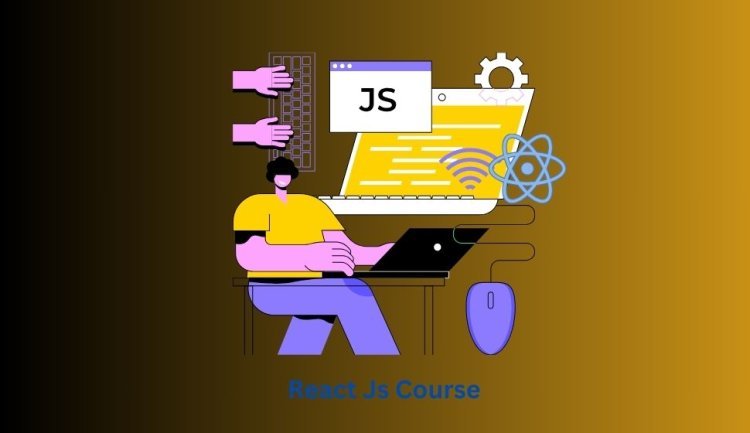Mastering React.js: A Comprehensive Training Guide
Mastering React.js requires dedication, practice, and a willingness to keep up with the latest trends and best practices in web development.

In today's fast-paced digital landscape, web development frameworks and libraries are constantly evolving to meet the demands of modern web applications. Among these, React.js has emerged as a powerful tool for building dynamic and interactive user interfaces. With its component-based architecture and declarative syntax, React.js offers developers a robust framework for creating scalable and efficient web applications.
If you're looking to enhance your skills and master React.js, you're in the right place. In this comprehensive training guide, we'll dive into the fundamentals of React.js, explore advanced concepts, and provide resources to help you become proficient in this popular JavaScript library.
Getting Started with React.js:
Before diving into React.js training, it's essential to have a solid understanding of JavaScript, HTML, and CSS. React.js is built on top of these web technologies, and familiarity with them will make your learning journey smoother.
-
Understanding the Basics:
- React.js is a JavaScript library for building user interfaces, developed by Facebook.
- It follows a component-based architecture, where UIs are composed of reusable and independent components.
- JSX (JavaScript XML) is used to write React components, which allows for the mixing of HTML-like syntax within JavaScript code.
- Virtual DOM (Document Object Model) is a key concept in React.js, enabling efficient updates to the UI by minimizing DOM manipulations.
-
Setting Up Your Development Environment:
- Install Node.js and npm (Node Package Manager) to manage dependencies.
- Create a new React.js project using tools like Create React App or manually set up a project with webpack and Babel.
-
Building Your First React Component:
- Start with a simple "Hello World" component to understand the basic structure.
- Learn about JSX syntax and how to render components within other components.
Advanced React.js Concepts:
Once you're comfortable with the basics, it's time to explore more advanced concepts and features of React.js course.
-
State and Props:
- Understand the difference between state and props in React components.
- Learn how to manage component state and update it using setState().
- Explore prop types for type checking and validation.
-
Lifecycle Methods:
- Dive into React component lifecycle methods like componentDidMount, componentDidUpdate, and componentWillUnmount.
- Understand when and how to use each lifecycle method to manage component behavior.
-
Hooks:
- With the introduction of Hooks in React 16.8, functional components gained the ability to use state and other React features without writing a class.
- Explore useState, useEffect, useContext, and other built-in hooks to manage state and side effects in functional components.
-
Routing and Navigation:
- Learn how to implement client-side routing in React.js using libraries like React Router.
- Build a multi-page web application with multiple routes and navigation links.
-
State Management:
- Explore state management solutions like Redux or Context API for managing global state in larger React applications.
- Understand the principles of immutable state and how to maintain application state efficiently.
Resources for React.js Training:
-
Online Courses:
- Udemy: "React - The Complete Guide" by Maximilian Schwarzmüller
- Pluralsight: "React.js Getting Started" by Samer Buna
- Codecademy: "Learn React" interactive course
-
Documentation and Tutorials:
- React.js official documentation
- FreeCodeCamp: React.js tutorials and projects
- React Patterns: Best practices for writing clean and maintainable React code
-
Community and Forums:
- Stack Overflow: Q&A forum for React.js developers
- Reactiflux Discord community: Active community for React.js enthusiasts
- Reddit: Join the React.js subreddit for discussions and updates
Conclusion:
Mastering React.js requires dedication, practice, and a willingness to keep up with the latest trends and best practices in web development. By following this comprehensive training guide and leveraging the resources provided, you'll be well-equipped to build powerful and scalable web applications with React.js. Whether you're a beginner or an experienced developer, React.js offers endless possibilities for creating dynamic user interfaces and enhancing the user experience on the web. So, roll up your sleeves, dive into the world of React.js, and unleash your creativity in building next-generation web applications.
What's Your Reaction?











![Wireless Connectivity Software Market Size, Share | Statistics [2032]](https://handyclassified.com/uploads/images/202404/image_100x75_661f3be896033.jpg)



